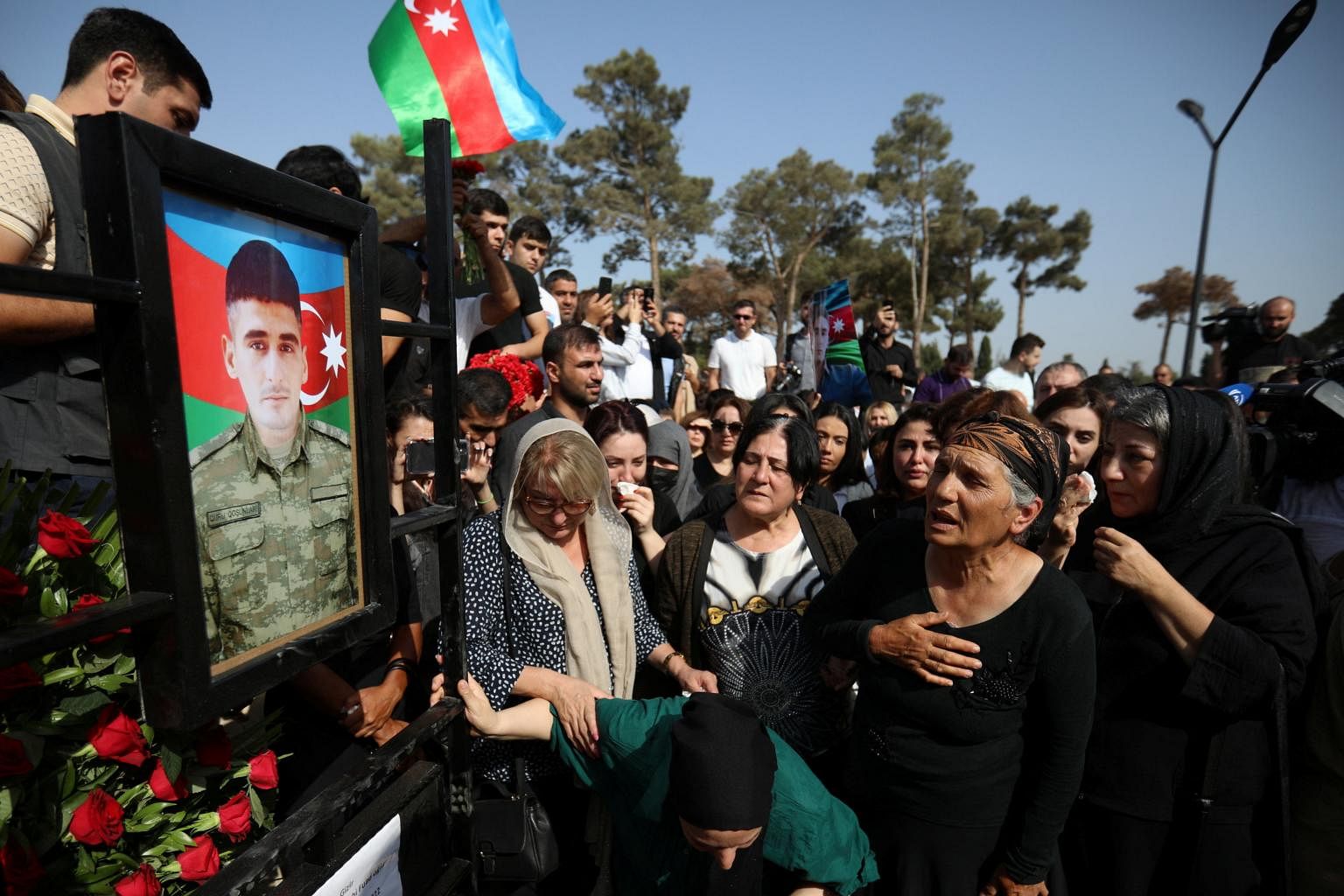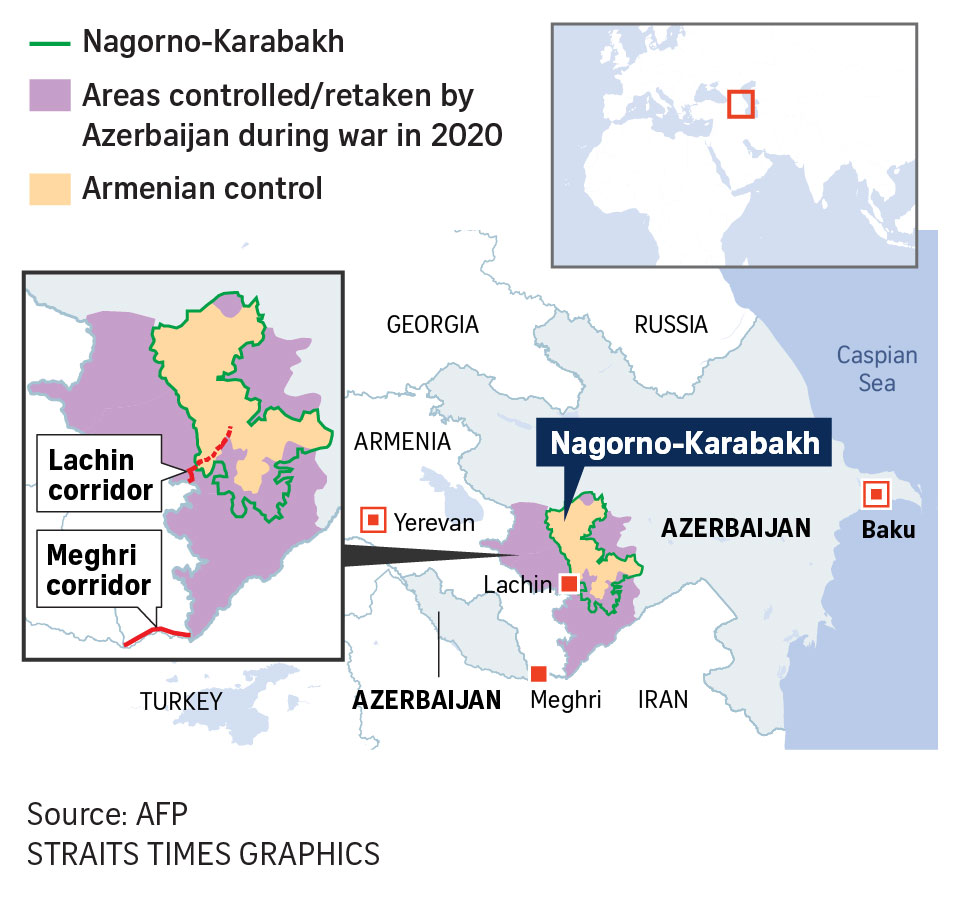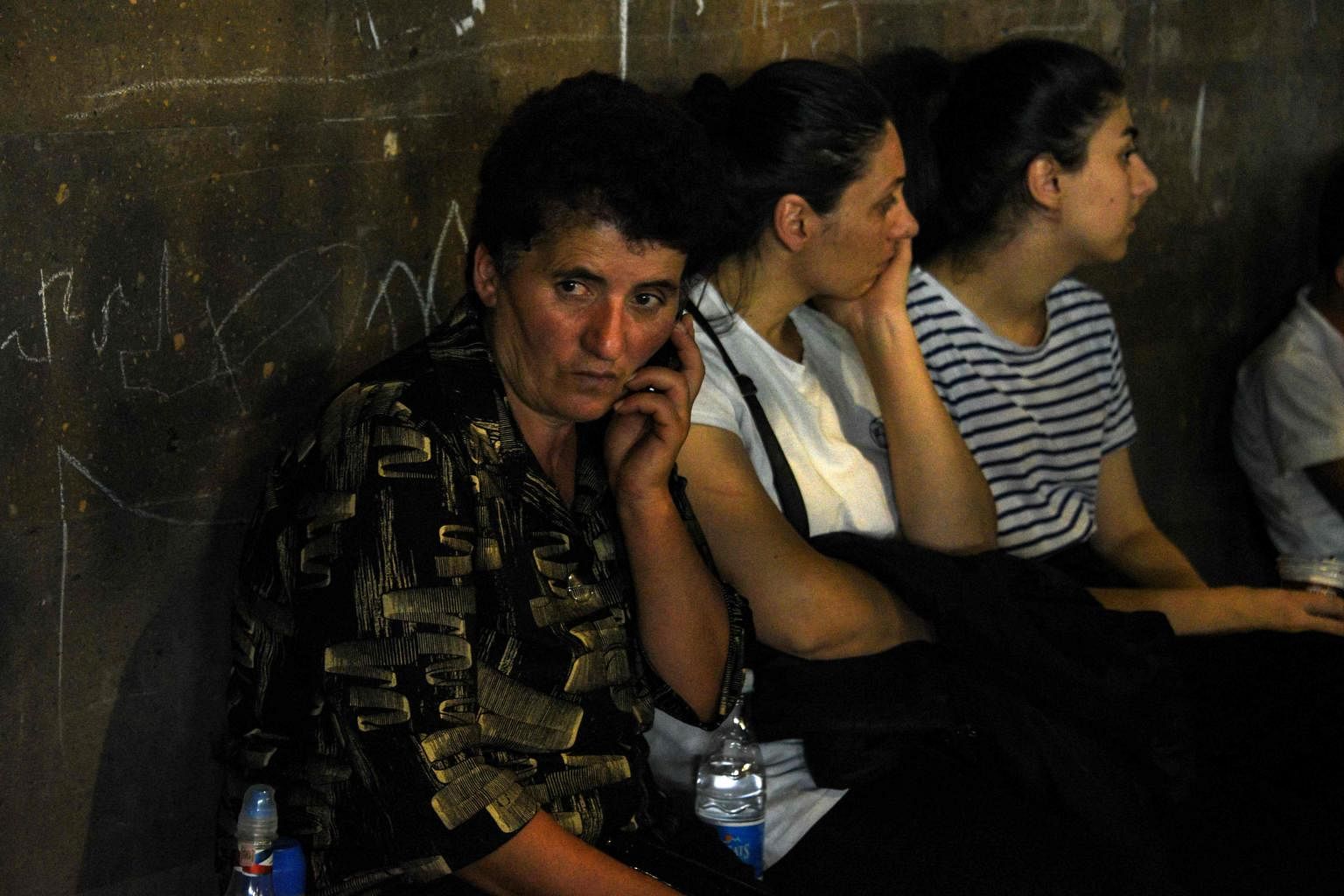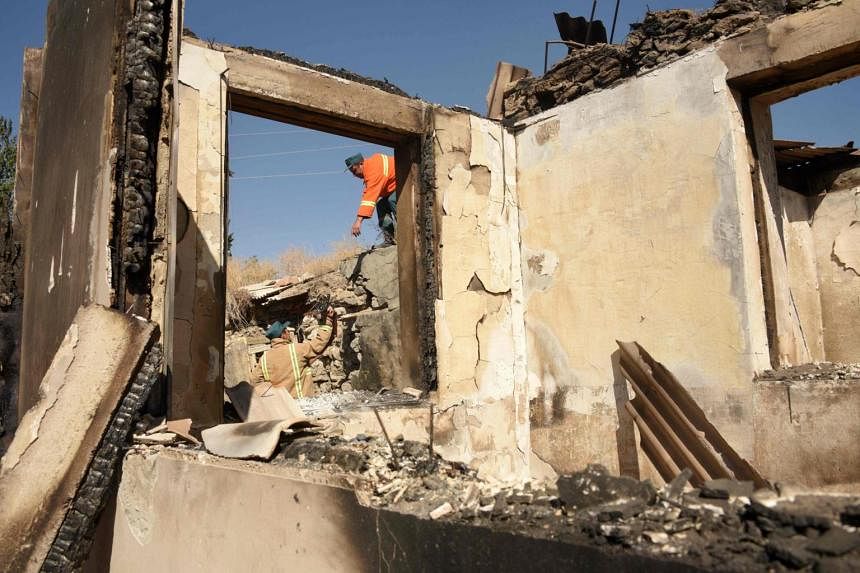TBILISI - New clashes erupted between Azerbaijan and Armenia on Wednesday as international peace efforts intensified a day after the ex-Soviet republics witnessed the deadliest violence since 2020.
Armenian Prime Minister Nikol Pashinyan told Parliament that the small, landlocked country had appealed to the Moscow-led Collective Security Treaty Organisation (CSTO) to help it restore its territorial integrity after Azerbaijani attacks.
"If we say that Azerbaijan has carried out aggression against Armenia, it means that they have managed to establish control over some territories," Mr Pashinyan said, according to Tass news agency.
Mr Pashinyan said that 105 Armenian servicemen had been killed since the attacks began, including against the spa town of Jermuk, known across the former Soviet Union for its hot springs.
The violence that erupted on Tuesday along Armenia's border with Azerbaijan, which Baku blamed on Yerevan, prompted an appeal for calm from Russian President Vladimir Putin and international calls for restraint.
Armenian Deputy Foreign Minister Paruyr Hovhannisyan told Reuters on Wednesday that there was a risk that the deadly clashes could escalate into a war - a second major armed conflict in the former Soviet Union while Russia's military is focused on the invasion of Ukraine.
A full-fledged conflict between Armenia and Azerbaijan would risk dragging in Russia and Turkey, and destabilise an important corridor for pipelines carrying oil and gas just as war in Ukraine disrupts energy supplies.
Azerbaijan accused Armenia, which is in a military alliance with Moscow and home to a Russian military base, of firing mortars and artillery at its army units.
Baku reported 50 military casualties on the first day of fighting and said on Wednesday that two civilians had been injured since the clashes erupted.
"Our positions are periodically being fired on at the moment," Azerbaijan's Defence Ministry said. "Our units are taking the necessary response measures."
Armenia's Defence Ministry, which has denied shelling Azerbaijani positions, said that Wednesday's fighting had largely subsided by midday. Reuters was unable immediately to verify battlefield accounts from either side.
Diplomatic efforts

The flare-up in violence has triggered international concern, with Russia, the United States, France and the European Union stepping up diplomatic efforts.
US Secretary of State Antony Blinken on Tuesday said Russia could either "stir the pot" or use its influence to help "calm the waters".
He held separate calls with Mr Pashinyan and Azerbaijani President Ilham Aliyev to urge a ceasefire, and in particular expressed concern about shelling deep in Armenia.
French Foreign Minister Catherine Colonna, in a call with her counterparts from both countries, also called for the "end of strikes against Armenian territory".
EU Special Representative Toivo Klaar was due in the south Caucasus on Wednesday to facilitate dialogue.
The CSTO also dispatched a delegation to assess the situation on the border.
In other strife involving ex-Soviet republics, Kyrgyzstan and Tajikistan border guards exchanged fire in three incidents on Wednesday after a dispute over the two Central Asian nations' frontier, officials on both sides said.
Armenia and Azerbaijan have been fighting for decades over Nagorno-Karabakh, a mountainous enclave internationally recognised as part of Azerbaijan but which until 2020 was entirely populated and controlled by ethnic Armenians, with backing from Yerevan.
Azerbaijan made significant territorial gains in and around Nagorno-Karabakh in a six-week war that year. Since then, skirmishes have erupted periodically despite a Russian-brokered ceasefire and tentative steps on both sides to reach a more comprehensive peace settlement.

Why are Armenia, Azerbaijan fighting again, and why does it matter?
At least 99 Armenian and Azerbaijan soldiers were killed on Tuesday in the deadliest fighting between Azerbaijan and Armenia since a 2020 war.
What are Armenia and Azerbaijan fighting over?
Armenia and Azerbaijan, two former Soviet countries in the south Caucasus, have been fighting for decades over Nagorno-Karabakh, a mountainous enclave internationally recognised as part of Azerbaijan but which until 2020 was populated and fully controlled by ethnic Armenians.
In a six-week war that year, Azerbaijan won significant territorial gains in and around Nagorno-Karabakh.
The fighting was ended by a Russian-brokered ceasefire, but skirmishes have erupted periodically since then despite the presence of Russian peacekeepers.
In the latest flare-up, Yerevan said several Armenian towns were attacked overnight.
Azerbaijan said it was responding to Armenian provocations.
Why has fighting broken out now?

The timing is significant because Russia has in the past been the most influential mediator between Armenia and Azerbaijan.
Although the Kremlin said on Tuesday that President Vladimir Putin was making every effort to curb bloodshed in the south Caucasus, the war in Ukraine has undermined Moscow’s status as a peace guarantor in the region.
That may have emboldened Azerbaijan to pursue more claims.
Azerbaijan and Armenia categorically disagree on what a comprehensive peace agreement should look like.
While Baku wants to dissolve Nagorno-Karabakh as a political entity and bar Yerevan from playing a role there, Armenian authorities have pledged to ensure the rights of local Armenians.
What are the risks?
A full-fledged conflict between Armenia and Azerbaijan risks dragging in the big regional powers, Russia and Turkey, and destabilising the south Caucasus, an important corridor for pipelines carrying oil and gas, at a time when the Ukraine war is already disrupting energy supplies.
Moscow has a defence alliance with Armenia and operates a military base there, while Ankara backs its ethnic Turkic kin in Azerbaijan both politically and militarily.
A war between Armenia and Azerbaijan could create a need for more peacekeepers, at a time when Moscow could ill-afford to provide them.
REUTERS

